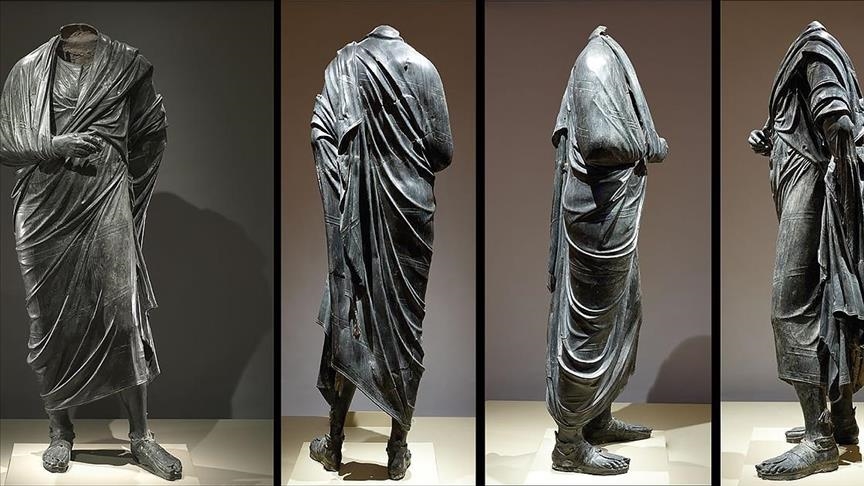Türkiye Says It Has Secured Return of Looted Roman Statue
A bronze statue of Roman Emperor Marcus Aurelius, looted from Türkiye in the 1960s, is being returned from a US museum after a lengthy legal battle. The repatriation is part of a wider global effort to return cultural artifacts to their countries of origin.

By Kamaran Aziz
ERBIL (Kurdistan24) – After a decades-long legal and diplomatic battle, a priceless bronze statue of the Roman Emperor Marcus Aurelius that was looted from Türkiye in the 1960s is set to be returned to its homeland, Türkiye's official Anadolu Agency (AA) reported.
The repatriation marks a significant victory for Türkiye in its efforts to reclaim stolen cultural heritage from Western institutions.
According to the AA report published Wednesday, the statue, which depicts Aurelius as a philosopher and dates from around AD 50-250, was illegally excavated from the ancient city of Boubon in southwestern Türkiye before being smuggled abroad.
The artifact, which towers at 1.93 meters (6.3 feet) without its head, has been housed at the Cleveland Museum of Art in the United States.
Anadolu Agency noted that the statue's return follows lengthy legal and scholarly efforts. The Cleveland Museum of Art reportedly contested its seizure in court in 2023, arguing its origins were unclear. However, Turkish authorities presented evidence that disproved the museum’s claim, leading to the decision for its repatriation.
The statue was officially handed over to Türkiye during a ceremony at the museum in April but remained for a special exhibition. It is now set to be repatriated within days via a charter flight provided by Turkish Airlines, the report stated.
Known as the philosopher emperor, Marcus Aurelius (121-180 AD) was the last of Rome’s ‘Five Good Emperors,’ a period of great stability and prosperity. According to the report, he was also a renowned Stoic thinker, and his personal journal, Meditations, remains a philosophical classic. His death marked a turning point for the Roman Empire, ushering in a more turbulent era.